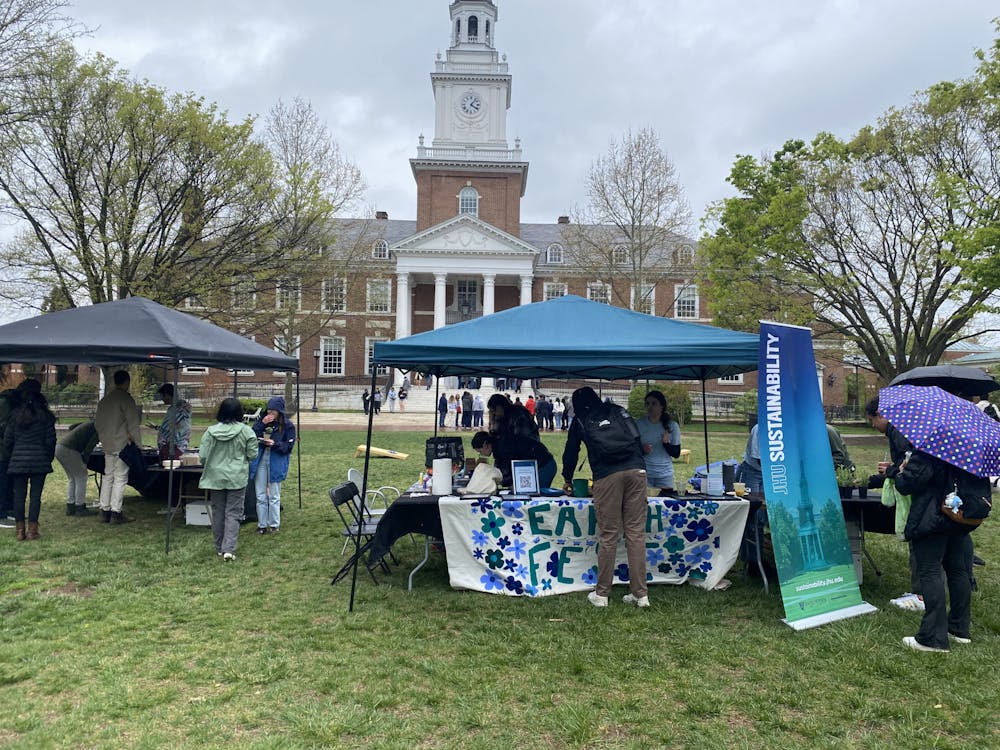Recent changes to the University’s alcohol and party policies have altered the process of annual fraternity and sorority recruitment. The University has also made changes to recruitment itself, including shortening the pledge period, raising the price of recruitment and enforcing a dry rush for all fraternities.
Panhellenic sorority recruitment, which ended this past Sunday, was shortened from seven to four days. The fee has been doubled from $25 to $50 and the GPA requirement has been raised from a 2.0 to a 2.5.
Dry rush is being enforced for all fraternities, and recruitment fees have increased as well. Junior Nic Ulm, a brother in Beta Theta Pi (Beta), commented on the changes and how they have affected this year’s recruitment. Despite all the changes, Ulm said he thinks more students have signed up to rush than last year.
“In terms of the changes to how we run rush, it has made it more difficult for those rushing to be eligible to join our fraternity. While it is an additional set of requirements, I feel that it has not changed much,” Ulm wrote in an email to The News-Letter. “I believe dry rush gives fraternities [a chance] to see those rushing in an environment outside of the typical party scene or academic setting.”
The amendments to the University-wide Student Life Policy, outlined in an email sent to all students in November, will affect Greek activities this semester. The policy, which went into effect on Jan. 4, introduces an amnesty provision and revises policies on off-campus party registration and sanctions.
The Alcohol Strategy Working Group and a student subcommittee began discussing the changes last spring and shared their ideas with Hopkins student organizations and the Student Government Association (SGA) throughout the fall.
Director of Fraternity and Sorority Life Calvin Smith said that the policy was formed out of consensus among different groups and Greek organizations.
“[The Office] went to all sports clubs, RAs and the SGA to come up with this policy in October and November. A wide range of individuals came up with this. They trained in December with social event chairs and residential chairs from all of the [Greek Life] chapters,” he said.
Smith believes that the new policy balances safety and the student experience.
“We want to make sure people have fun but plan a little bit better,” he said. “We’ll work with students and meet them halfway.”
However, senior Daulton Newman, president of the Interfraternity Council (IFC), thinks that the administration failed to fully consult members of his organization about the changes.
“They may have had the input of one IFC member, but not the IFC as a whole,” he said.
He believes that the policy’s definition of “party” is problematic.
The Student Life Policy defines a party as: “Any party, activity, or other event at a House that is attended by twenty-five (25) or more individuals, whether residents or non-residents of the House, and at which alcohol is provided, served, and/or consumed. The term “House” means an off-campus house, apartment or other residence in which four (4) or more members of a Recognized Student Group/Organization reside.”
In his view, Newman says that the standard is too broad, considering current student practices.
“The problem would be like Wawa [Alpha Delta Phi] where you have 50 people living in the house who are members of the fraternity, and if one of them decides to have a drink, then it is still defined as a party,” he said. “Anything can be construed as a party. If it’s a party, and you get in trouble for alcohol, then it’s a double penalty.”
The policy changes have implications for sororities and fraternities that pregame, when students drink in groups before going to a party. Members often go to multiple places to pregame, making the policy ineffective.
“You’d have to register all five or six of those locations as parties. It is unclear if you can register more than one event at the exact same time, so it is likely to be denied,” Newman said.
Furthermore, he believes that residents of a House are unlikely to follow the registration procedures for all parties they hold.
The new policy requires that House residents fill out a registration form at least 72 hours before the time of the party for review by the Office of Student Life. However, students in private off-campus residences that don’t qualify as “Houses” are not required to do so. In addition, the House must maintain a guest list.
In an apparent contradiction, Newman was told that an event form requires a seven-day advance, and the guest list requires a five-day advance.
“[Filling out] the event form a week before is realistic. The guest list five days before is not,” he said, noting that it ignores the spontaneity of parties.
In addition, while Hopkins policy applies to parties of at least 25 people, some local chapters of national organizations on campus define it as a mere three people. This ambiguity makes Newman concerned about possible penalization despite their best attempts to follow Hopkins policy.
Smith says that he will work hard at ensuring people understand the new policies, and he reinforced his office’s commitment to promoting a positive Greek life experience.
“We will work with Safety and Security to inspect houses, check insurance and check guest lists,” Smith said.
But Newman favors common-sense rules that are more closely tailored to reality.
“Personally, the best way to define a party is if it looks like a party. Everybody knows what a space can handle, what the limit can be. You can tell by the noise and amount of people whether or not it’s a party,” he said. “It shouldn’t matter what any outside organization decides as a party. It depends on what the students want.”
















Please note All comments are eligible for publication in The News-Letter.